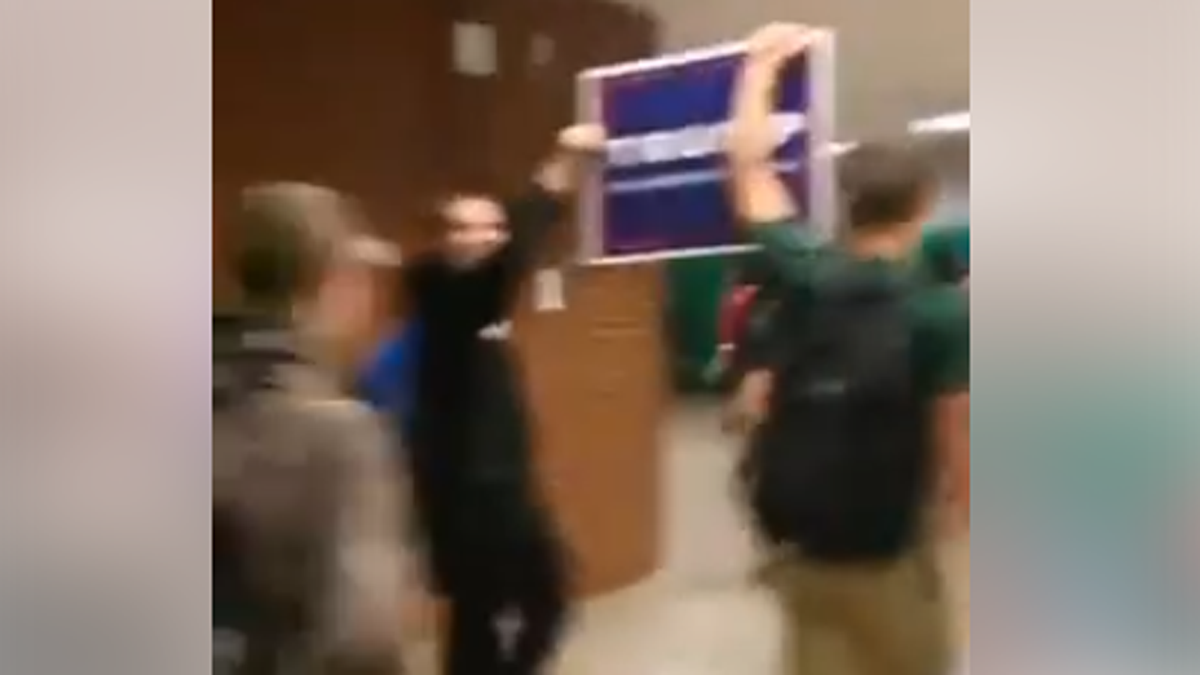A prescription for detoxifying hate speech at schools
Listen
In this screenshot
Since the presidential election, the Southern Poverty Law Center has collected more than 400 reports of intimidation and harassment based on race, gender, religion or sexual identity. Many of those incidents have occurred in schools.
When a student uses hate speech, educators can feel at a loss for how to respond, said psychologist Howard Stevenson, the Constance Clayton Professor of Urban Education at the University of Pennsylvania.
“The tendency is to just squash any kind of hate speech, which I understand,” he said.
But that approach can be problematic. If teachers just move on without addressing the incident more fully, he said, they don’t get a chance to see what’s behind the hateful attitude. What’s more, he said, the target doesn’t get a chance to counter the speech.
“I think you don’t give people a chance to talk about what drives them for making the comment, as well as what strategies the recipient can use to cope with it,” Stevenson said. “Just the fact that someone might use hate speech and then doesn’t get a counter, a comeback, I think gives more power to those who did the hate speech.”
Stevenson has some advice for educators and students on how to confront these incidents.
Teachers should get kids involved in an exchange, a moment to continue the conversation, he recommended.
“You can say, ‘Excuse me? Wait, could you say that again? Cause I’m not sure I heard what you said.’ A comeback line is important because it means that you don’t waste any time,” Stevenson said. “You don’t spend days later thinking, ‘I wish I could have said something.”‘
Children who have time to think about and process a comeback are less shocked by hate speech if it happens, he added.
Teachers can tie hate speech to what students are already learning, to show kids that hateful words can lead to violence, he said. They can support kids by giving them the space to process and react to hateful incidents, while trusting in a school’s code of conduct to ultimately take care of discipline.
WHYY is your source for fact-based, in-depth journalism and information. As a nonprofit organization, we rely on financial support from readers like you. Please give today.

